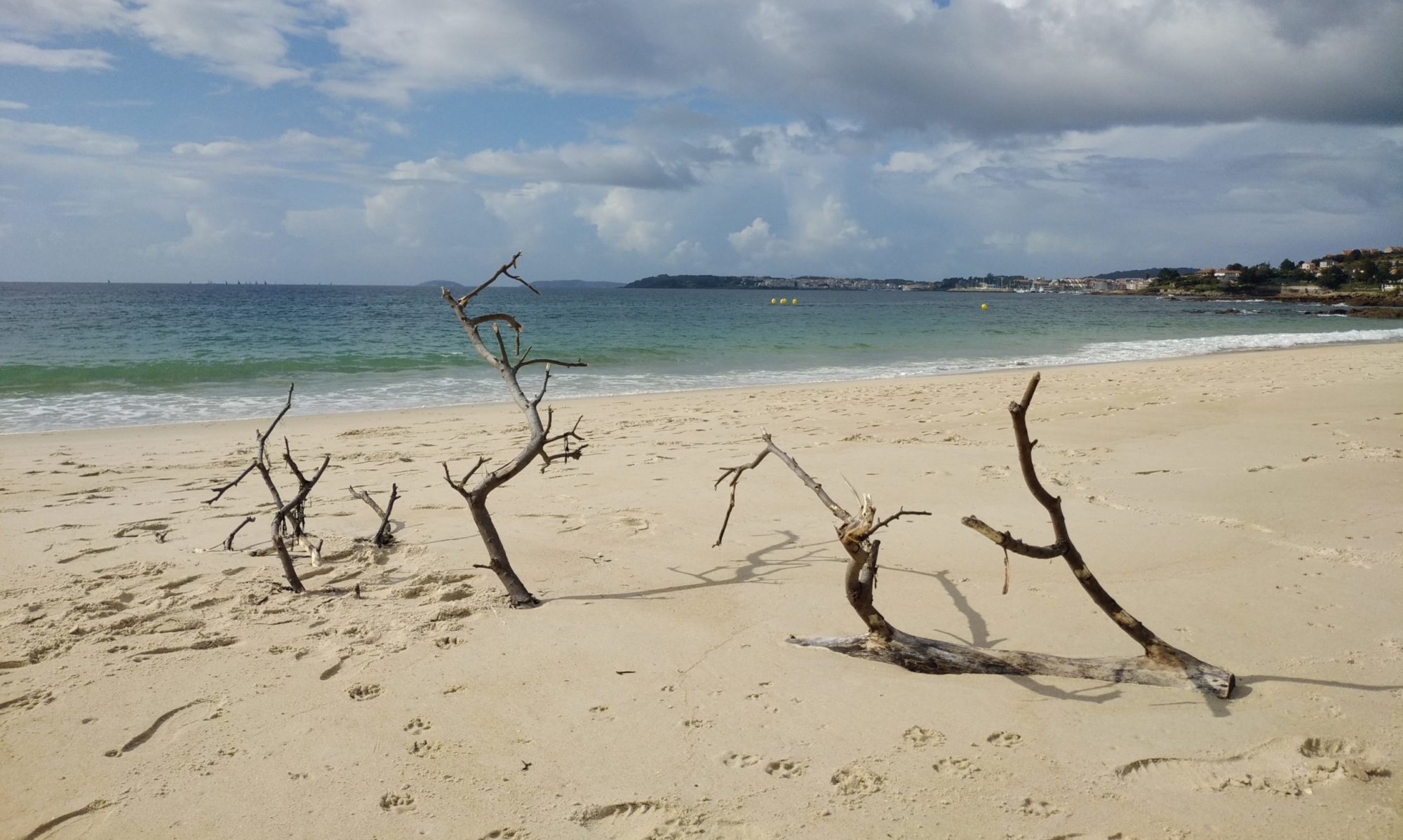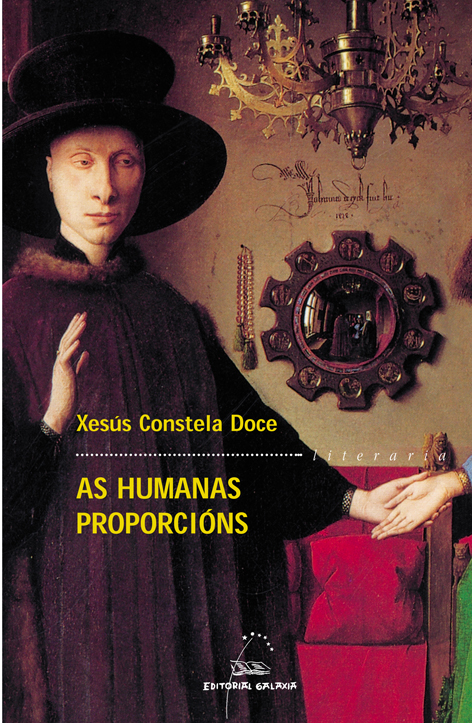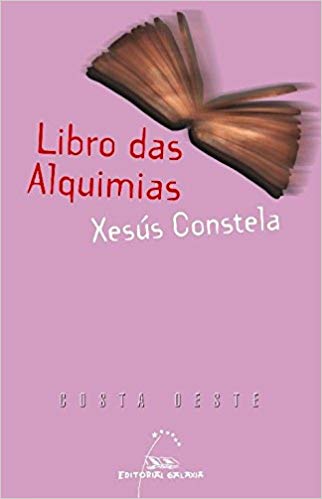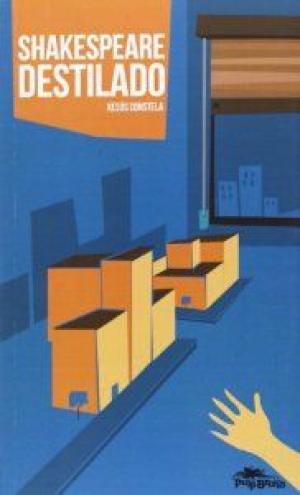As humanas proporcións / The Human Proportions (2003)
As humanas proporcións configura unha proposta literaria que procura desmontar convencións e tópicos mediante un estilo directo e orixinal. Os seus relatos están escritos con técnicas diversas. O libro descobre unha dimensión nova do mundo cotián percorrendo todas as facetas da vida humana: o nacemento e a vellez, o corpo vivo cambiante, e tamén a desesperación e a morte, o poder e a procura da liberdade, a violencia individual e a social, o amor e a parella.
The Human proportions forms a literary proposal that seeks to dismantle conventions and topics through a direct and original style. The stories are written using various techniques. The book uncovers a new dimension of the everyday world through all facets of human life: birth and old age, the changing living body, and also despair and death, power and the quest for freedom, individual and social violence, love and couple.
Relatos: / Short stories:
- «As lembranzas todas» / «All the Memories»
- «Non escoites a Giovanna» / «Don’t listen to Giovanna»
- «Celia e o príncipe» / «Celia and the Prince»
- «Onde estás, meu amor, Sangare?» / «Where are You, Sangare, my Love?»
- «Lily» / «Lily»
- «Algarismos» / «Figures»
- «Burbulla» / «Bubble»
- «Geographos» / «Geographos»
- «A sementadora de estrelas» / «The Star Seeder»
- «Son unha raia» / «I’m a Line»
- «Tiñádelo que ver» / «You Should Have Seen It»
- «Na fraga» / «In the Forest»
Premios / Awards
- Premio Torrente Ballester / Torrente Ballester Award (2003)
- Premio da Crítica da Asociación Española de Críticos Literarios / Spanish Critics Association Award (2004)
Libro das alquimias / Book of Alchemies (2007)
Un rapaz que está a descubrir o mundo encontra de pronto, no local da antiga mercería que había no baixo da súa casa, a presenza dun vello e misterioso bibliotecario que sen que el se decate, e coa axuda dun pequeno libro de pastas vermellas e follas amareladas polo paso do tempo, vai cambiar a súa vida para sempre, porque da súa man e tamén da man dos libros que amorean sen orde nin concerto vai viaxar, nada máis e nada menos, que á creación e posterior destrución da Biblioteca de Alexandría.
Alí vai coñecer a Hypatia, a súa derradeira directora, morta sen piedade en mans dos monxes paraboláns que actuaban baixo as ordes de Cirilo de Alexandría dentro da onda de represión que acompañou a extensión do cristianismo.
A young boy who is discovering the world suddenly finds, in the premises of the old haberdashery in the basement of his house, the presence of an mysterious old librarian who without him noticing, and with the help of a small book of red cover and pages yellowed by the passage of time, will change his life forever, because he will travel to the creation and subsequent destruction of the Library of Alexandria.
There he meets Hypatia, its last director, who died mercilessly at the hands of parabolan monks who acted under the orders of Cyril of Alexandria within the wave of repression that accompanied the spread of Christianity.
Shakespeare destilado / Shakespeare distilled (2008)
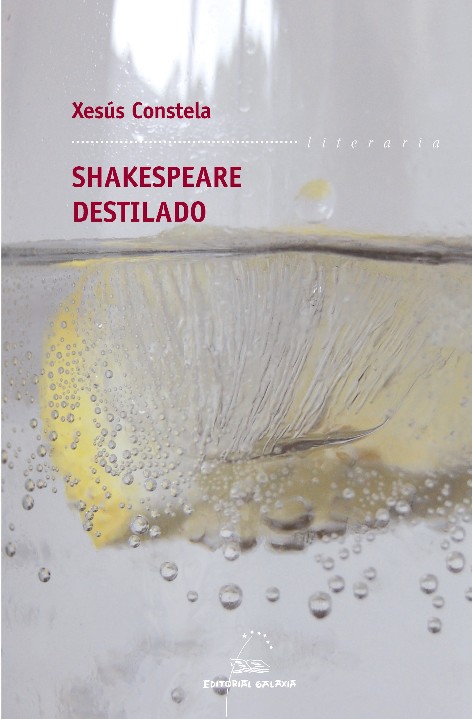
MERCAR / BUY/ COMPRAR
Na novela o autor manexa a linguaxe coloquial, co seu ritmo ás veces sincopado, as súas reviravoltas e o seu sentido do humor, para narrar a historia de Willy, un personaxe que teima en construír a maqueta dunha cidade dentro do piso onde vive enclaustrado e onde se estimula a base de gin tonics e lecturas dos Sonetos de Shakespeare.
O contraste -contrapuntístico e musical- entre a linguaxe informal do monólogo e as alusións á literatura, a mestura entre o delirio etílico e o delirio literario, entre o sublime da alta literatura dos sonetos e a vida ruín e desleixada do protagonista, acada enorme forza narrativa, crea un efecto burlesco que cuestiona o status da ficción, a verosimilitude e mesmo o papel do autor como creador todopoderoso.
A historia de Willy é a historia da construción da maqueta, que a personaxe vai erguendo casa a casa e rúa a rúa ata que a cidade enteira e os seus habitantes cobran vida.
Metáfora burlesca da literatura, Shakespeare destilado é unha novela que procura a diversión do lector, que aproveita o relato para reflexionar sobre o poder da literatura, sobre todo como gozar dela sen perder a liberdade.
In the novel, the author uses a colloquial language, with its sometimes syncopated rhythm, twists and humor, to tell the story of Willy, a man who loves to build the model of a city on the floor where he lives in a cloister and where he feels stimulated by gin and tonics and compulsive readings of Shakespeare’s Sonnets.
The contrast – counterpoint and musical – between the informal language of the monologue and allusions to literature, the mix between ethical and literary delirium, between the sublime high sonnet literature and the ruined and sloppy life of the protagonist, reaches enormous narrative strength and creates a burlesque effect that questions the status of fiction, verisimilitude, and even the role of the author as an all-powerful creator.
Willy’s story is the story of the model the character builds from house to house and street to street until the entire city and its inhabitants come to life.
A burlesque metaphor of literature, Shakespeare distilled is a novel that seeks to amuse the reader, who uses the story to reflect on the power of literature, especially how to enjoy it without losing freedom.
15.724 / 15,724 (2012)
Cun enorme poder metafórico, 15.724, trasládanos a unha Patria «asentada no lombo dunha ave durmida» que está presidida pola figura do Gran Mariscal e ten como símbolo intocable o armadillo da súa bandeira.A través dunha narrativa distanciada que nos amosa unha xeografía dominada polas Leis do Libro dos Protocolos, o código que «ditaba as pautas, contaba e clasificaba o tempo, sinalaba a velocidade, deseñaba metas e marcaba obxectivos», imos coñecendo esa Patria, na que se desencadea a traxedia de toda unha familia.
En Vila Estrelecida, Mamá Monte coida dos seus netos Samuel R., Nube e Gordo. A partir da morte de Nube, o seu xemelgo, Gordo, cae nun estado de aletargamento que cambiará o destino da súa vida e obrigará a Samuel R. a afrontar unhas circunstancias terriblemente difíciles.
E mentres Leo K. vai publicando na Gaceta do Val unha serie de artigos de opinión que marcan as pautas da boa ética dos habitantes da Patria, Gordo convértese no centro de atención de todas as olladas. Que pode facer Samuel R. para deter o reloxo e axudar o seu irmán?
With an enormous metaphorical power, 15,724, moves us to a Homeland «seated on the back of a sleeping bird» which is presided over by the figure of the Grand Marshal and has the armadillo of its flag as its untouchable symbol . Through a distant narrative that shows us a geography dominated by the laws of the Book of Protocols, the code that «dictated the guidelines, counted and classified the time, set the speed, and set goals», we know the Homeland, in which the tragedy of an entire family is triggered.
In Starry Village , Mama Mountain cares for her grandchildren Samuel R., Cloud and Fat. After Cloud’s death, her twin brother, Fat, falls into a state of lethargy that will change the fate of her life and force Samuel R. to face circumstances.
And while Leo K. is publishing in the Gazette of the Valley a series of opinion articles that set the guidelines for the good ethics of the inhabitants of the Homeland, Fat becomes the center of attention of everybody. What can Samuel R. do to stop the clock and help his brother?
Apoteose das perchas / Apotheosis of the Hangers (2014)
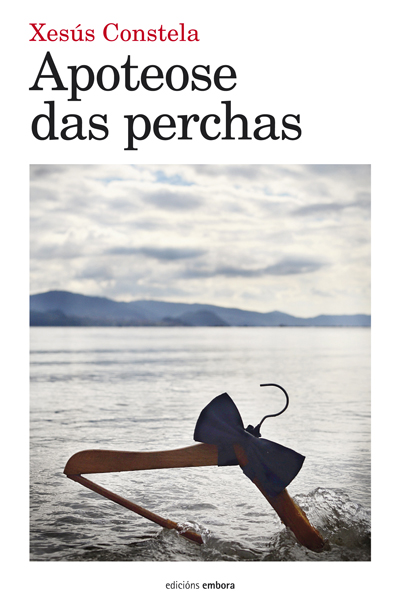
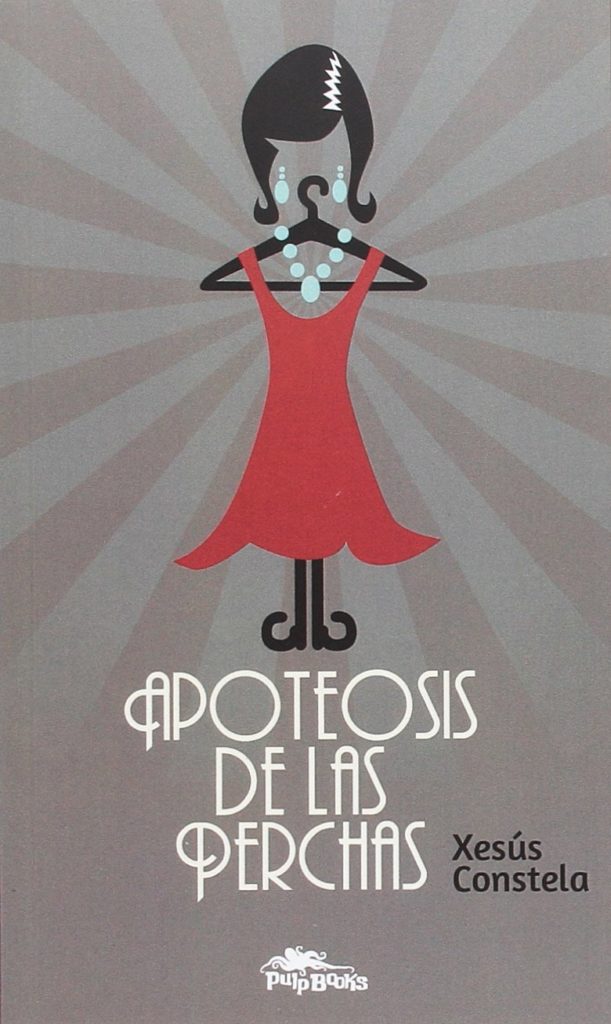
Tommaso Bonnano é un xove mendigo que gaña o pan nun barrio napolitano ate que, no que semella un momento de arroutada, intenta matar a paus a un home que nada lle fixera.
Pero nada neste mundo é sinxelo e o protagonista é un firme defensor da idea de que “cada quen ten que viaxar no lugar que lle corresponde” cousa esta que aprendeu a bordo do maxestoso Spirit of the Seas, o barco no que traballara antes de adicarse á mendicidade. Catro asasinatos sen resolver completan a trama deste divertimento napolitano.
Tommaso Bonnano is a young beggar who earns his living in a Neapolitan neighborhood until, in what seems like a moment of caraziness, he tries to kill a man who has done nothing to him.
But nothing is so simple in this world and the protagonist is a firm supporter of the idea that «everyone has to travel in the right place». This is what he learned aboard the majestic Spirit of the Seas, the cruise ship he had worked on before beginning to beg.
Four unresolved murders complete the plot of this Neapolitan divertimento.
A rotura das paisaxes / The Breaking Landscapes (2016)
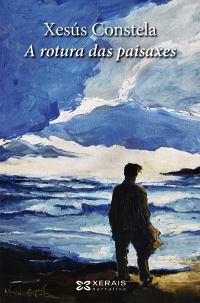
Dous homes de avanzada idade camiñan por unha praia enleados en distintas conversas mentres, para o seu abraio e incomodidade, atenden, sen pretendelo, a unha serie de acontecementos que escapan da súa comprensión e van alterando o seu estado de ánimo. Esa circunstancia obrígaos a reflexionar sobre a súa situación na praia, sen liberarse da dúbida de que se atope alguén máis canda eles a quen non dan visto.
Cunha linguaxe multifocal, que ás veces roza o surrealismo, mesturando realidade e ficción de xeito continuo e partindo dunha cita do pintor Toulouse-Lautrec (que di que o esencial é a figura mentres que a paisaxe é un mero accesorio), Xesús Constela achéganos un libro no que xoga con diversas técnicas literarias que van desde o máis espido dos diálogos, ata unha sorte de poesía de carácter narrativo, pasando pola linguaxe cinematográfica ou a prosa poética, entre outras.
Con moitas e moi diferentes voces narradoras relatando ao mesmo tempo, A rotura das paisaxes configúrase como un libro que admite diversas ordes de lectura e, xa que logo, pode ser interpretado como unha novela para quen queira ver nel unha novela, ou unha colección de relatos para quen prefira ver nel unha colección de relatos.
Two elderly men stroll along beach in different conversations while, to their surprise and discomfort, they attend, without intending it, a series of events that escape their understanding and alter their mood. That circumstance forces them to reflect on their situation on the beach, without releasing the doubt that someone else is with them who do not see.
With a multifocal language, which sometimes scratches surrealism, mixing reality and fiction continuously and departing. from a quote by the painter Toulouse-Lautrec (who says that the essential is the figure while the landscape is a mere accessory), Xesús Constela brings us a book in which he plays with various literary techniques ranging from the nastiest of dialogues, to some kind of narrative poetry, passing through film language or poetic prose, among others.
With many and very different narrative voices relating at the same time, The Breaking Landscapes is configured as a book that allows different reading levels and, therefore, it can be interpreted as a novel for anyone who wants to see a novel in it, or a collection of stories for those who would rather see a collection of stories.
Lisa deitada / Lying Lisa (2018)
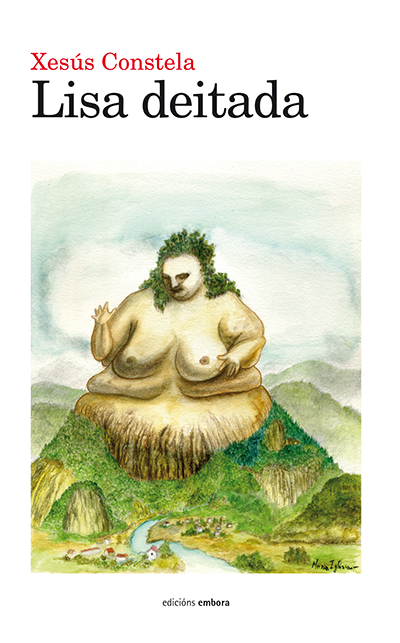
Os axentes Combarro e Souto investigan o incendio que queimou unha vivenda en fronte do restaurante Gran Muralla.
Cheos de morriña, Li Min e Wang Yong sobreviven como poden lonxe da súa China querida.
Nunha casa perdida entre eucaliptos, Mamá e Papá, ao seu xeito, educan a pequena Elisenda co maior dos agarimos.
O avó Jianguo sobrevoa a cidade de a cabalo do seu dragón longo coma un mundo…
E Lisa? Lisa, coma sempre, no sofá deitada.
Agents Combarro and Souto are investigating the fire that burned down a home in front of the Great Wall restaurant.
Really homesick, Li Min and Wang Yong survive as they can away from their beloved China.
In a house lost among eucalyptus trees, Mom and Dad, in their own way, educate little Elisenda with the greatest of affection.
Grandpa Jianguo flies over the city on his dragon long as the whole world…
And Lisa? Lisa is, as always, lying down on her couch .
O peso do cerebro / The Weight of the Brain (2021)
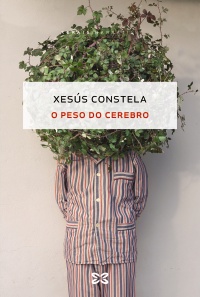
En O peso do cerebro Xesús Constela cuestiónase de que xeito, chegada a vellez, poden as nosas lembranzas confabularse para nos manipular e en que lugares se agachan esas memorias traizoeiras.
Na cidade barco, que languidece tras perder o lustre do seu glorioso pasado de grandes estaleiros e insignes navegantes, don Honorio, enguedellados por completo os seus pensamentos, congrega arredor de si un singular grupo de personaxes mentres procura o xeito de coller unha lancha na que poder cruzar a ría para asistir a unha verbena.
A súa neta Paula corre desesperada no seu auxilio para ver de impedir que poida sufrir ningún dano.
Entrementres, agachadas no falso anonimato do pé de páxina, dúas mulleres rexouban sen censura nin escrúpulos acerca de todo canto vai pasando.
In The Weight of the Brain, Xesús Constela wonders how, in old age, our memories can conspire to manipulate us and where these treacherous memories are hidden.
In Ship Town, which languishes after losing the luster of its glorious past of great shipyards and distinguished sailors, Don Honorio, completely entangled in his thoughts, gathers around him a singular group of characters as he seeks a way to catch a boat in which to be able to cross the estuary to attend an open-air dance.
His granddaughter Paula runs desperately to try to prevent him from suffering any harm.
Meanwhile, hiding in the false anonymity of the footnote, two women gossip without censorship or scruples about everything that is happening.
